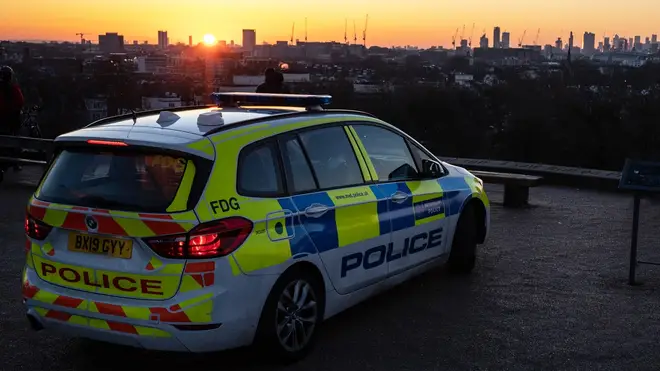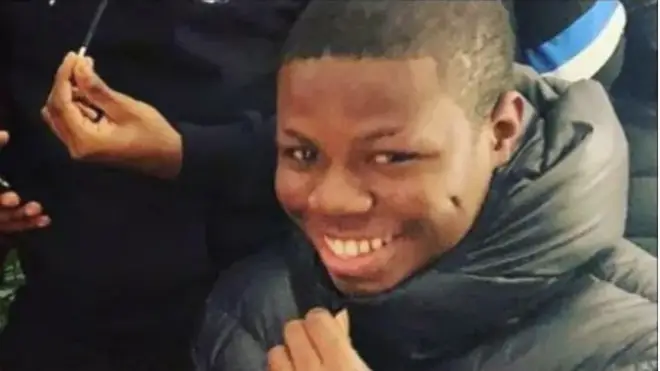
Clive Bull 1am - 4am
7 July 2021, 08:12 | Updated: 7 July 2021, 08:27

Court orders aimed at stopping people as young as 12 from carrying knives are being tested in London.
Police are now able to apply to the courts for a knife crime prevention order (KCPO) to be imposed on a youngster they believe is carrying blades, regularly has knives or has knife-related convictions.
It comes after two teenage boys died in separate stabbings on Monday, leading to concerns that the grim tally of violent teenage deaths in London for the whole year will exceed the previous high of 27 in 2017.
This would mean the highest teenage death toll since 2012. So far in the capital in 2021, a total of 21 teenagers have been killed in just over six months.
Home Secretary Priti Patel said the 14-month trial, which is being run by the Metropolitan Police ahead of plans to roll it out across forces in England and Wales, "will crack down on those carrying weapons while at the same time as intervening to steer them away from a life of violence".
Two boys aged 15 and 16 were killed in separate knife attacks on Monday.
And two teenagers were charged with murder over the stabbing death of 16-year-old Camron Smith in Shrublands in Croydon on Thursday shortly after midnight.

The younger boy died when violence broke out near Woolwich Arsenal station in south-east London just after 5.20pm, while the 16-year-old was found injured in Oval Place in Lambeth shortly before midnight.
Under KCPOs, youngsters could find themselves facing conditions such as curfews and restrictions on their use of social media under the orders.
They could be banned from travelling to certain geographical areas as well as being stopped from carrying a knife.
The KCPOs can be in place for a maximum of two years and must be reviewed by the courts after 12 months, with orders issued to under-18s to be reviewed more regularly.
The courts can also call for a range of activities to take place such as educational courses, sports club referrals, relationship counselling, anger management, mentoring and drug rehabilitation under the orders.
Breaching the order will be a criminal offence punishable by a maximum prison sentence of two years if convicted.
The Home Office said KCPOs are aimed at stopping a small but high-risk cohort of individuals from causing immediate harm to others along with turning young people away from a life of crime and potentially being exploited by criminal gangs.
Ms Patel added: "Police have asked for these orders to help them keep our streets and young people safe, and I will always do everything in my power to ensure they have the tools and powers to cut crime and protect the public."
The results of the London pilot, which began on July 5, will be reviewed after 14 months before a decision is made on whether to expand the scheme.
The orders are designed to work alongside current police powers to tackle knife crime, which include the existing offence of possessing a bladed article in public without good reason and stop and search.
Metropolitan Police Commander Ade Adelekan believes the orders will be a "valuable tactic" and provide more options for officers who are tackling violence in London.
He said: "They will allow intervention at an early stage and divert vulnerable people at risk of becoming serious criminals by supporting them to make better lifestyle changes away from violence.
"Also, they will enable police to monitor the individual and enforce the law on them if they breach it.
"Both outcomes helping to keep our communities safe."
Pastor Lorraine Jones, 48, whose son Dwayne Simpson was stabbed to death at the age of 20 as he tried to save a friend's life in Brixton, south London, in 2014, said: "These orders are just what we need and are vitally important for us in the community as we have a number of young people who carry knives for various reasons in fear.
"They will give us greater opportunity to work with young people and potentially divert them from prison, as they too are vulnerable at a tender age and at risk of being killed or using that knife to take a life."
Earlier this year, senior police officers expressed concern that violence may rise over the summer months as it did last year when lockdown measures were eased.
The surge in 2020 was put down partly to feuds being played out on social media during coronavirus restrictions, and then spilling out on to the streets.
According to figures from City Hall, in 2012 there were nine teenage homicides; 12 in 2013; 13 in 2014; 19 in 2015; and 13 in 2016.
After the peak in 2017, there were 24 such deaths in 2018; 26 in 2019; and 14 in 2020 - although the country was in lockdown for large chunks of that year.
In April this year, police forces across the UK staged a national crackdown on knife crime, deploying knife arches and sniffer dogs in busy areas and encouraging the public to hand in weapons.